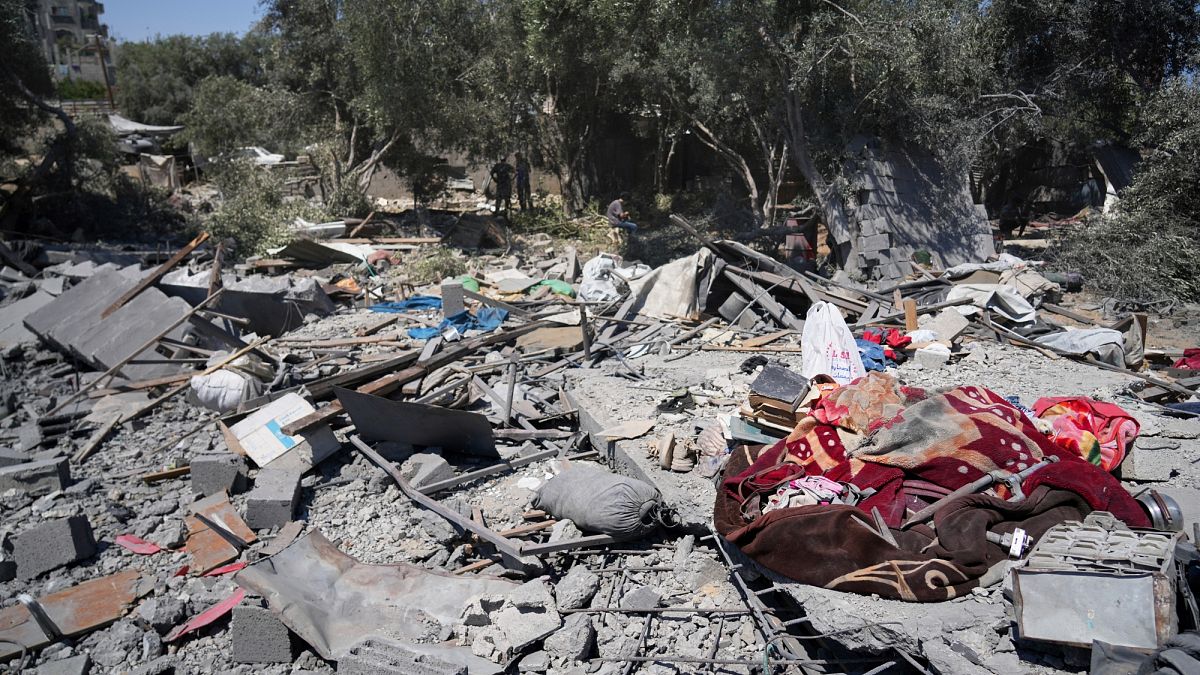

In recent days, the Middle East and Ukraine have witnessed an escalation in violence, marked by a series of tragic events. Amidst ongoing conflict and diplomatic efforts to restore peace, civilians continue to bear the brunt of warfare’s devastation. This article provides a calm and balanced overview of the recent developments in these regions, as reported by various sources.
The region of Gaza has been particularly affected by heightened hostilities. A reported technical malfunction in an Israeli airstrike has resulted in the loss of civilian lives. According to health officials and witnesses, an explosion at a water collection point in Nuseirat, Gaza, led to the deaths of 19 individuals, including six children. The Israeli military acknowledged that a targeted militant operation was misjudged due to a technical error, causing the device to detonate off target. This unfortunate incident is part of a broader pattern of conflict in the area which has seen the Palestinian death toll rise significantly, with over 58,000 lives claimed in the ongoing hostilities.
Alongside these tragic events, there has been escalating violence in the West Bank. The killing of Sayfollah “Saif” Musallet, a 20-year-old Palestinian-American, by Israeli settlers has drawn international attention. The incident, described by witnesses as a brutal attack, occurred as Musallet was visiting relatives and reportedly obstructed medical response at the scene. This highlights not only the physical violence endured but also the complex intersection of nationality and identity amidst conflict.
Elsewhere in the Middle East, reports have emerged from Iran regarding an Israeli attack that targeted a National Security Council meeting in Tehran last month. The incident, which occurred and purportedly resulted in injuries to high-ranking officials including the president, underscores the persistent tension and the precariousness faced by countries in the region.
Meanwhile, Ukraine grapples with increased aggression as Russia launched its largest aerial attack against the country. Ukrainian President Volodymyr Zelenskyy condemned the series of missile and drone strikes, advocating for additional sanctions from the international community. This surge in hostilities underscores the critical need for a reevaluation of military and diplomatic strategies moving forward. Experts suggest that a shift toward “strategic neutralization” may help Ukraine better manage its pressing national security concerns.
The recent dramatic escalation in both the Middle East and Ukraine reaffirms the need for peacebuilding efforts that prioritize humanitarian concerns and long-term stability. Despite current setbacks in ceasefire negotiations, particularly between Israel and Hamas, efforts to resume talks and reduce civilian casualties remain of paramount importance. As communities in these areas continue to endure the challenges of conflict, the international community is called upon to provide ample support and guidance towards a peaceful resolution.
In conclusion, it is with a hopeful lens that we look towards the potential for resolution and peace in these turbulent regions. Despite the hardships faced, the enduring strength and resilience of those affected offer a testament to the human spirit’s capacity for hope and rebuilding in times of adversity.
Source: {link}
